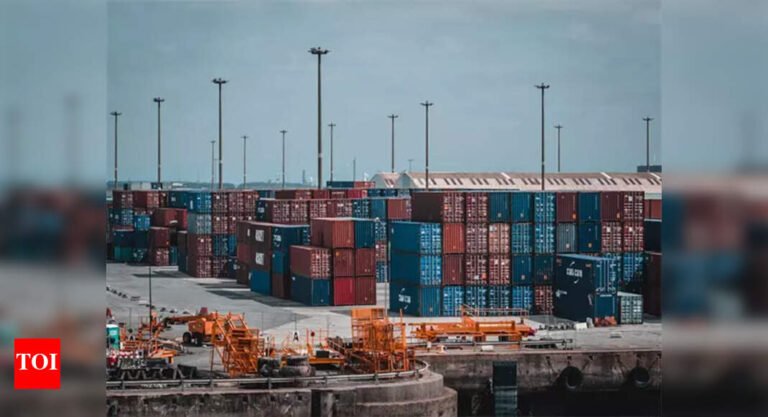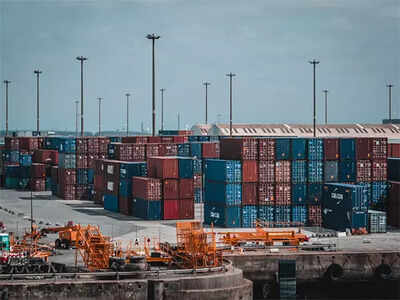India imposed sweeping restrictions on imports from Bangladesh via land ports, a move that could disrupt goods worth $770 million, nearly 42 per cent of total bilateral imports, a report by the Global Trade Research Initiative (GTRI), a trade-focused think tank said.The Union ministry of commerce and industry announced the restrictions on Saturday, after a directive from the directorate general of foreign trade (DGFT). Under the new rules, major Bangladeshi exports such as garments, processed foods, and plastic goods will now be channelled through select seaports only, effectively cutting off long-established land-based trade routes.Garments, Bangladesh’s top export to India and valued at $618 million annually, will now be restricted to just two designated sea ports. The GTRI warned this change would deal a significant blow to Dhaka’s most profitable trade corridor into India.Indian textile manufacturers have long accused their Bangladeshi counterparts of having an unfair edge in the domestic market, citing duty-free access to Chinese fabrics and generous government export subsidies. These advantages reportedly allow Bangladeshi exporters to undercut Indian prices by 10–15%.But the GTRI suggests the Indian restrictions go beyond economic concerns. “The restrictions look like India’s response to Dhaka restricting imports from India on a large number of items and diplomatic pivot towards China,” the report said.Diplomatic tensions between the two neighbours have been simmering in recent months. Bangladesh’s interim chief adviser Muhammad Yunus, in his recent speech in China, described India’s northeastern states as “landlocked region with no access to the ocean,” sparked outrage in New Delhi. Officials in India viewed the remark as an attempt to undermine the strategic importance and connectivity of the region.The GTRI also linked the trade restrictions to Bangladesh’s shifting geopolitical stance. Since the fall of Sheikh Hasina’s pro-India government in mid-2024, Dhaka has moved closer to Beijing. Muhammad Yunus’s March 2025 visit to China resulted in $2.1 billion in fresh investments and cooperation agreements, including infrastructure projects like the Teesta River development, seen by India as a direct challenge to its influence in the region.Adding to the strain, Bangladesh has been rolling out a series of curbs on Indian exports since late 2024, including a ban on Indian yarn through five major land ports, restrictions on rice shipments, and import bans on a wide range of Indian products, from paper and fish to powdered milk. Dhaka also imposed a new transit fee on Indian goods, set at 1.8 taka per tonne per kilometre.The latest measures mark a sharp downturn in trade ties between the two nations, with both sides now locked in an escalating tariff and transit battle that could reshape regional commerce in South Asia.
Trending
- Mohandas Pai flags lack of domestic capital for Indian startups; urges policy overhaul; calls for stronger R&D support
- Trump-Musk rift rattles Wall Street; Tesla share slide exposes market fragility; major indexes take a hit
- Real estate market: Major listed firms sell over Rs 1 lakh crore properties; Godrej leads
- Delhi infrastructure project: Centre approves Rs 24,000-crore plan to decongest Delhi; Tunnel to link Mahipalpur to Vasant Kunj
- Tata Steel new plant: $1.5-billion electric arc furnace facility to come up at Port Talbot; UK government gives 500 million pounds
- RBI repo cut effect: HDFC slashes lending rates by 10 bps; new rates already in effect
- Jamie Dimon-led JPMorgan issues stern warning! Job hopping analysts to be fired; ‘if you accept a position with..’
- Myntra goes global: Online retailer launches first international platform in Singapore; targets Indian diaspora
- Market valuation: Mcap of 9 of 10 most valued firms jumps Rs 1 lakh crore; Reliance leads the way
- ‘Not a good indicator, what counts is…’: India overtaking Japan to be 4th largest economy no reason to be smug; WEF ex-MD serves reality check



